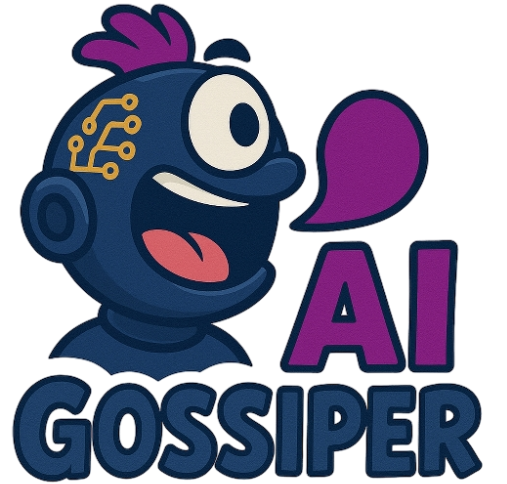
AI in Digital Marketing: Key Trends and Strategic Impacts for Modern Businesses
The integration of artificial intelligence (AI) into digital marketing is transforming how businesses engage with customers, optimize campaigns, and drive revenue. With advancements in machine learning, natural language processing, and data analytics, companies that leverage AI tools gain a significant edge in efficiency, personalization, and scalability. Below, we explore the key trends shaping AI in digital marketing and their strategic impacts on modern businesses.
Key Trend 1: Hyper-Personalization at Scale
AI enables marketers to analyze vast amounts of customer data—such as browsing behavior, purchase history, and demographic details—to deliver hyper-personalized experiences. Sophisticated algorithms segment audiences in real time and predict individual preferences, allowing brands to tailor content, product recommendations, and email campaigns to each user. For instance, streaming platforms like Netflix use AI to suggest shows, while e-commerce sites like Amazon recommend products based on past interactions.
Strategic Impact: Enhanced Customer Loyalty
Personalization builds trust and loyalty by making customers feel understood. Businesses using AI-driven personalization report higher conversion rates, repeat purchases, and customer lifetime value. By automating individualized content, brands can maintain relevance in a crowded market without manual effort.
Key Trend 2: Predictive Analytics for Smarter Decisions
Predictive analytics uses historical data and machine learning to forecast future trends, customer behaviors, and campaign outcomes. Marketers can anticipate demand, identify high-value leads, and allocate budgets more effectively. For example, AI tools analyze social media engagement patterns to predict which posts will go viral or which products will trend.
Strategic Impact: Cost Efficiency and Higher ROI
By focusing resources on strategies with the highest predicted returns, businesses minimize waste and maximize revenue. Predictive models also help avoid costly missteps, such as investing in underperforming ad creatives or targeting unresponsive audiences.
Key Trend 3: AI-Driven Content Creation and Optimization
AI-powered tools like ChatGPT, Jasper, and Grammarly assist in generating blog posts, social media captions, ad copy, and video scripts. These platforms analyze top-performing content to suggest keywords, optimize readability, and ensure SEO compliance. Additionally, AI image generators create visuals that align with brand aesthetics.
Strategic Impact: Faster Time-to-Market
Automating content creation slashes production time, enabling teams to publish more frequently without compromising quality. AI also A/B tests headlines, CTAs, and layouts to refine messaging dynamically, improving engagement rates.
Key Trend 4: Chatbots and Conversational Marketing
AI chatbots provide instant, 24/7 customer support by answering queries, resolving issues, and guiding users through sales funnels. Advanced chatbots use natural language processing to interpret context and emotions, offering human-like interactions. For example, Sephora’s chatbot offers makeup tutorials, while Domino’s chatbot processes orders via voice commands.
Strategic Impact: Improved Customer Satisfaction
Instant responses reduce wait times and friction in the customer journey. Chatbots also collect valuable data on common pain points, helping businesses refine their offerings and support workflows.
Key Trend 5: Automated Advertising Campaigns
Platforms like Google Ads and Meta use AI to automate bid adjustments, audience targeting, and ad placements. Machine learning algorithms test thousands of combinations to identify the most cost-effective strategies. For instance, programmatic advertising buys ad space in real time based on user behavior.
Strategic Impact: Precision Targeting
AI ensures ads reach users most likely to convert, lowering cost-per-click (CPC) and increasing sales. Automation also frees teams to focus on creative and strategic tasks rather than manual optimizations.
Strategic Impacts of AI Adoption
The above trends collectively drive five core strategic advantages for businesses:
1. Competitive Advantage: Early adopters of AI differentiate themselves by offering cutting-edge customer experiences.
2. Scalability: AI handles repetitive tasks, allowing businesses to grow without proportionally increasing overhead.
3. Data-Driven Culture: Teams make decisions backed by insights rather than intuition, fostering agility.
4. Global Reach: AI tools translate content, adjust pricing for local markets, and optimize campaigns across time zones.
5. Future-Proofing: As AI evolves, businesses equipped with foundational tools adapt quickly to new opportunities.
Future Outlook
AI will continue to revolutionize digital marketing through innovations like emotion detection, voice search optimization, and augmented reality integrations. Brands that fail to adopt these tools risk falling behind as customer expectations for speed, relevance, and interactivity rise.
Ready to unlock the full potential of AI in your marketing strategy? Discover actionable steps to automate workflows, personalize campaigns, and generate over $10,000 monthly with the 5 AI-Powered Income Secrets: The Ultimate 30-Day Blueprint to Master Digital Marketing. This guide provides proven tactics to leverage AI for rapid growth.
Click here to get your copy now.

